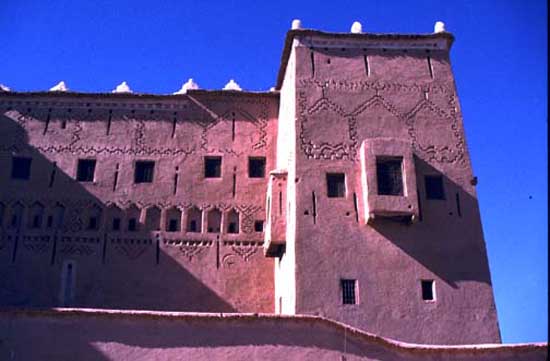
Morocco RPCV Jason Ben-Meir says Community Development should be the principle focus for the Peace Corps
Community development - the principle focus for Peace Corps
By Jason Ben-Meir
Since the Peace Corps began, there has been an on-going debate within the agency about which of its two goals should be primary - community development or cultural exchange? Historically, agency directors left it to the Volunteers to find their own balance between the two goals, depending on where they served. Today however, there is much greater urgency to this long-standing internal debate. The United States faces the monumental tasks of rebuilding its global image and promoting international development that addresses the root causes of religious and secular extremism. The Peace Corps has a chance to play a pivotal role in helping the United States advance on both of these international imperatives.
Peace Corps Volunteers live and work among the world's neediest populations and thus are uniquely positioned to help local communities to design and manage development projects to meet their needs. This approach to socio-economic development has shown great success, largely because the communities have a strong incentive to maintain the projects its members establish. These projects (in education, health, agriculture, small business, information technology and environment) make communities feel they are included in a development process that is for once responsive to them. Local people in turn feel trust towards the Peace Corps Volunteers and others who helped bring beneficial projects into fruition. Volunteers who are dedicated and well trained in facilitating community development can ameliorate international economic and social despair, and in so doing enhance global security and the image of the United States.
The Peace Corps must now make community development the primary goal of Volunteers and the vehicle they use in functioning as agents of cultural exchange - and social, political and economic change as well. All of the 7,500 Volunteers currently serving in 71 countries, including 3,500 school teachers, should be trained in facilitating and negotiating the process of community development. Though Peace Corps' training of its Volunteers (and staff) is exemplary on the whole, a relative few receive hands-on training in facilitation. Volunteers who receive the training significantly increase (at least double) the number of community projects they help to create. Peace Corps also needs to substantially increase its Small Projects Assistance budget to help implement these new projects. The current annual budget averages only a few hundred dollars per Volunteer.
With plans underway to increase the number of Volunteers to the highest level in the history of the agency, the Peace Corps can, if it moves in this direction, play a truly vital role for peace. If Volunteers do not effectively function as development organizers and focus instead on cultural exchange, valuable as this experience is, they lose the opportunity of being able to create partnerships of potentially enormous benefit to entire communities. The Volunteers themselves also better understand the history, social relationships, economy, language and environment when they serve by being fully engaged in community development.
The urgent need to make the world a safer place should now prompt the Peace Corps to make community development its number one goal. Fortunately, elevating this goal furthers Peace Corps' overall mission; by the agency training all Volunteers to be facilitators of community development, they will more deeply immerse themselves in the cultures they serve while helping communities around the world realize opportunities that until now seemed impossible.
Jason Ben-Meir lectures on sociology at the University of New Mexico, Albuquerque. He is a former Peace Corps Volunteer and Program Manager who served in Morocco, and is President of the High Atlas Foundation, a nonprofit organization that promotes community development in Morocco.
